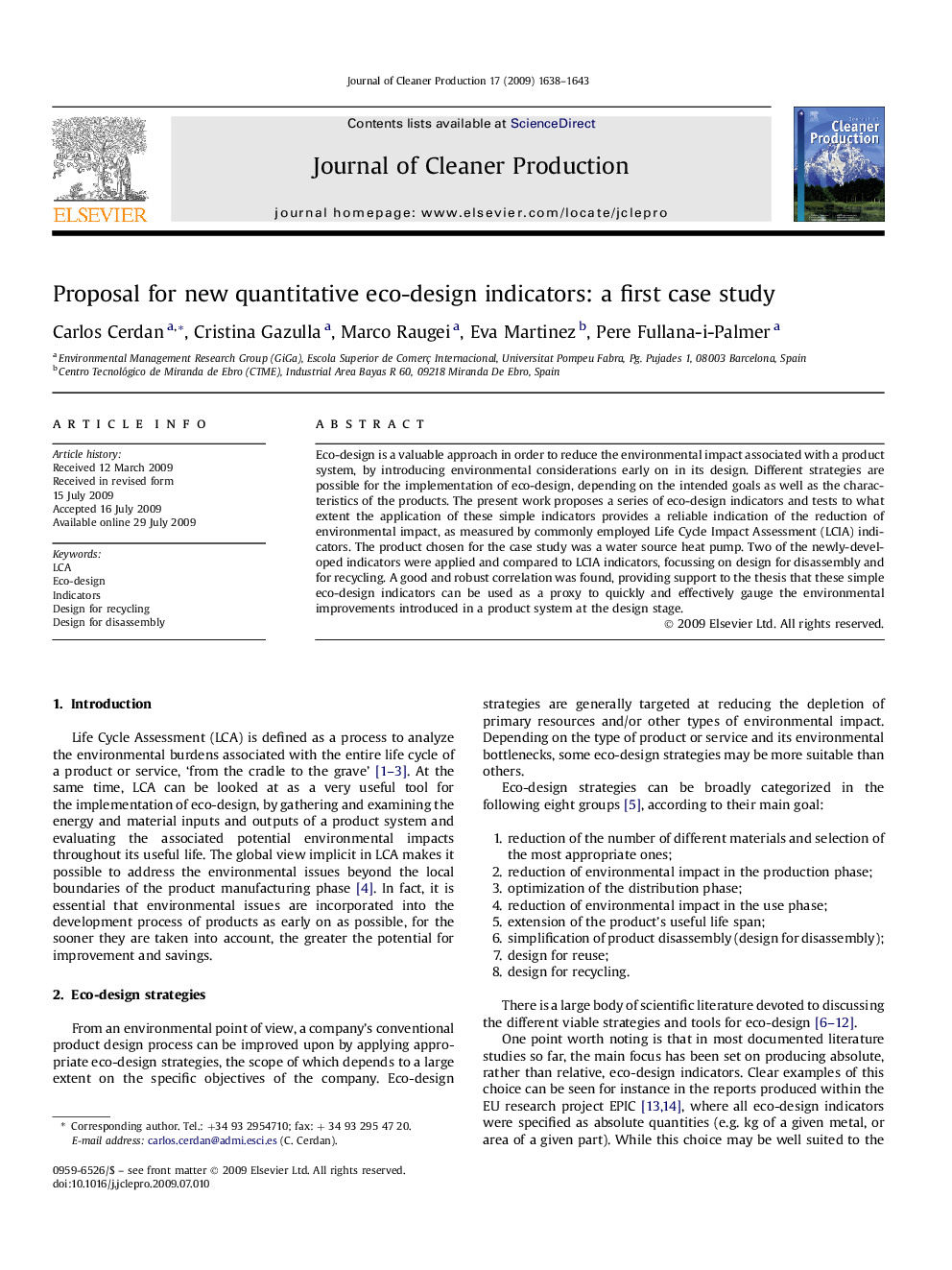| Article ID | Journal | Published Year | Pages | File Type |
|---|---|---|---|---|
| 1746161 | Journal of Cleaner Production | 2009 | 6 Pages |
Eco-design is a valuable approach in order to reduce the environmental impact associated with a product system, by introducing environmental considerations early on in its design. Different strategies are possible for the implementation of eco-design, depending on the intended goals as well as the characteristics of the products. The present work proposes a series of eco-design indicators and tests to what extent the application of these simple indicators provides a reliable indication of the reduction of environmental impact, as measured by commonly employed Life Cycle Impact Assessment (LCIA) indicators. The product chosen for the case study was a water source heat pump. Two of the newly-developed indicators were applied and compared to LCIA indicators, focussing on design for disassembly and for recycling. A good and robust correlation was found, providing support to the thesis that these simple eco-design indicators can be used as a proxy to quickly and effectively gauge the environmental improvements introduced in a product system at the design stage.
